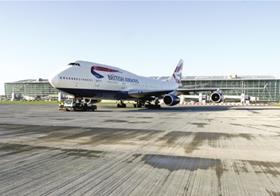
The International Civil Aviation Organization (ICAO) has drafted new recommendations for air freight security following last October's failed parcel bomb plot on two US-bound flights, reports IHS Jane.
The ICAO announced that revised supply chain security guidelines will be sent to all 190 member countries in the coming weeks and will be finalised in 2011, the report said.
The guidelines were framed by a panel of experts within ICAO, and were approved by its governing council on 17 November.
They focus on measures to inspect cargo before it is sent to the airport, and processes to protect shipments from interference before they are loaded, Jane said.
In particular, the guidelines recommend that ICAO member states introduce cargo screening technology, which could pose problems for poorer countries that cannot afford inspection equipment.
The ICAO guidance does not stipulate how much cargo should be screened before loading, the report said.
Meanwhile, the International Air Transport Association (IATA) has continued to call for a 'measured' response to the late-October bomb plot, reports ATW's Airports Today.
At the organisation's Cargo Media Day in Geneva this week, IATA officials told reporters that their focus was 'harmonisation' of air cargo security standards.
IATA director-security Ken Dunlap said the IATA was taking a three-pronged approach to airfreight security: get data on cargo shipments to regulators 'much faster'; allow cargo screening technology 'that's been languishing in labs' to be installed at airports; and ensure that any cargo security initiatives take a supply chain wide approach.
Mr Dunlap said that the search for a 'silver bullet' technology to scan airfreight had slowed down the process. 'Let's get security technology out there that may not be the silver bullet but can still detect explosives,' he said.
'We need to spread the screening responsibilities throughout the supply chain,' Mr Dunlap added. 'Everyone has a role to play in supply-chain security, from shippers to forwarders to airlines to airports to regulators.'



